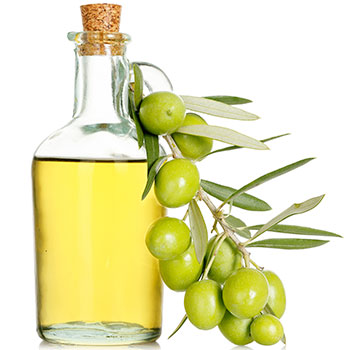Eating Healthy: the Basics
1. What is a healthy breakfast?
2. What is a healthy lunch?
3. What is a healthy dinner?
4. How much should I weigh?
5. How many calories should I be eating?
6. What is the best way to lose
weight?
7. How can I keep my weight loss
goal in mind and stay motivated?
8. What is a healthy weekly weight loss?
9. How to set weight loss goals and make
them happen
10. How to keep a food diary, and
why it is essential to successful weight loss
11. Are all fats bad for you?
12. Are saturated fats bad
for you?
13. Are
unsaturated fats good for you?
14. Are carbohydrates bad for you?
15. Is fiber good for you?
16. How to read nutrition/food labels
17. How to plan your weekly menus
18. Why should I eat less salt?
19. What
do the sodium (salt) numbers mean on food labels?
20. What is The Mediterranean Diet?
21. Why eating vegetables is good for
you
22. Why eating fruit and nuts
is good for you
23. Why are cereals and whole grains good for you?
24. What are legumes, and why are they good for you?
25. Why is eating fish good for you?
26. Which fats and oils are good for
you?
27. Are dairy products good for you?
28. Which meats should I not eat?
29. Is drinking alcohol good for
you?
30. Is it important to measure your
ingredients?
31. Are snacks good for you?
32. How to choose the right portion size
33. Can you lose weight with a smaller
plate?
34. Eat healthier by cleaning out your
pantry
35. Which oils and fats should I keep in my pantry?
35. Which oils and fats are good for you - and when should I use them?
36. Which carbohydrates are good for you?
37. What is the best chicken or turkey for you?
38. Are dairy products good for you?
39. Which nuts and seeds should I eat?
40. Is red meat like beef or pork bad or good for you?
41. Is eating dessert good or bad for
you?
42. Is drinking soda bad for you?
43. Is drinking coffee bad for you?
44. How can healthy food taste good? Part 1
45. How can healthy food taste good? Part
2
46. How to eat healthy while eating
out
47. Are vitamins and supplements necessary
to eat healthy?
48. How to eat healthy while traveling
Eating Healthy: the Basics
Are fats bad for you?

There's good reason to be confused about just what to eat and what not to eat. So many "diet" books focus only on the macronutrients: fats, carbohydrates and protein and over the last three decades there have been dozens of competing theories.
The low-fat wave, while well intentioned, wasn't completely correct. The message ended up being that all fats were bad. Even though researchers told us to not eat fat, it became clear pretty quickly that they had made a mistake. At the time it was known that eating foods high in saturated fat was a health issue, but we've come to know that other fats are more of a problem. Unfortunately the message in people's minds remained: "All fat is bad."
Some of the problem arises from the fact that it seems easier for folks to cope with only one of the macronutrients. Low-fat, low-carb, high protein, high fat - it seems so simple: "I'll just eat less and be fine." Eating healthy is about eating great food and not eliminating any single group of ingredients just because they contain fats (or carbs or protein).
So, just what are these fats we're talking about?
Fatty acids come in a number of forms. One of their main roles is to provide storage fuel for the body, but they also are involved in absorption of some vitamins, helping to control inflammation and also in blood clotting. There are some fats that our bodies can produce on their own. Others that we have to consume are known as Essential Fatty Acids (EFAs).
The fatty acid molecule is made up of chains of carbon atoms. Each carbon atom in the chain has either 1 or 2 hydrogen atoms attached to it. When there are two hydrogen atoms attached to every carbon atom in the string, the fat is referred to as "saturated."
That saturation is the important thing. We know that the type of saturated is what will have the most effect on your health (both for better and for worse).
It's pretty easy actually. Fat is OK. Saturated fats and trans-fats are those that you want to eat less of (more on them later). Fats that are unsaturated (having fewer hydrogen atoms) are better for you and the EFAs are those you want as part of your diet (more on those later).
Fats do have more calories per gram than carbohydrates or protein (9 grams for fat and 4 each for fat and carbs). Being careful with the amount of fat you consume can make a big difference in the number of calories you eat - but don't get obsessed with that.
The most important thing about eating healthy is the number of calories and also the quality of the calories you choose. Eating great quality fats means eating great quality calories.
